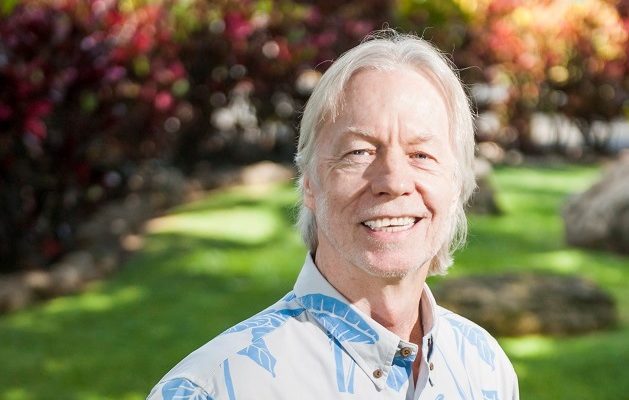
The actual 50th Anniversary of Hale Kipa’s Incorporation took place on January 26, 2020. That is somewhat ironic since January of 2020 was also the month that the agency began to occupy its new Harry and Jeannette Weinberg Hale Kipa Youth Services Center on Old Fort Weaver Road. The 50th Anniversary celebration is the recognition of the contributions and commitments of so many since Hale Kipa was first started in 1970, and in that sense, it marks the end of a chapter. The move to Old Fort Weaver Road represents the beginning of a new chapter. Fortuitously, it happens to come on the 50th Anniversary, which means that there is a convergence, an integration if you will, of our history with our hoped-for future. For the first time ever, Hale Kipa will have a place to call home. It has long been a desire of the Board and the agency to be able to have a sense of place; a place that is known as Hale Kipa, a place where people who are in need of services can come to heal. And while it is not a residential site per se, there are two Emergency Shelters on the campus, and youth and families will be receiving services there. Probably even more critical to those of who had been working on this project for so many years, it will also be a place where we hope to invite the community to take advantage of the facilities. In spite of the fact that there has been significant growth in the last 50 years in what is available as resources for our youth and families, we still have gaps that are critical in providing what individuals need and deserve.
The campus itself is a testimony to patience and perseverance, two of our espoused core values, and something that we respect the youth and families that we are privileged to serve. Not every path is straight forward and nor are the roads smooth and easy. But that is true of life as well. The campus is also a testimony to the faith that the donors have in Hale Kipa and in the agency’s ability to achieve its mission. That faith is based on 50th years of work by the organization that has consistently responded to the needs of adolescents and young adults, while being creative, flexible, and nimble in developing programs that meet their needs. While it is hard, and particularly in the non-profit and Human Services sector, to predict what the next 25 to 50 years will bring, Hale Kipa has a long history of adapting to the various changes in public policies, the commitment of funders, and in the ongoing evolution of society in general.
It is somewhat complicated for me to reflect on Hale Kipa’s 50 years of history, in part because I have only been here 22 years myself. That leaves 28 years prior to my arrival that I do not have direct memory of. I would say however, that having started an agency much like Hale Kipa in Massachusetts exactly 50 years ago, I do have a sense of the context in which Hale Kipa was birthed. I also have a good understanding of how an organization like Hale Kipa might have evolved from what was initially an Emergency Shelter into a robust continuum of services for youth and young adults and their families. There is a cohort of agencies much like Hale Kipa all over the country. All sprung up in the late 60’s of early 70’s as a result to significant changes in the social contracts, but also because of federal legislation that began to reinforce the opportunities that individuals with mental health, behavior health and other issues might avail themselves of. It is fair to say that Hale Kipa’s initial provisional Emergency Shelter provided a natural base upon which to expand into Kamala Foster Care and then to Independent Living Services. For youth in shelter had needs that were unmet and the community at the time did not have all the resources that it has today. And in spite of the fact that there has been significant growth in the last 50 years in what is available as resources, we still have gaps that are critical in providing what individuals need and deserve.
Hale Kipa’s history is a testimony to the staff, Board, and volunteers who carried the organization since its inception. The agency has been blessed from the very beginning with a strong, active, and working Board. I have experienced that during my 22 years at Hale Kipa as a legitimate and authentic partnership between the governance entity, the Board of Directors, and Senior Leadership, the people who are actually operating and running the agency. Hale Kipa has been true to its mission and has not drifted, again a tribute to the vision of the Board and the Leadership of the agency and the recognition that there are things that we are very good at i.e. we have core competencies and there are things that others are better at doing. Thus, the long-standing belief that we are some things to some people. We have no desire to try to be all things to all people nor are we all things to some people. We are part of a complex system and a community. It does take a village to raise a child, as well as to provide the services that are necessary. In a perfect world all of us are playing to our strengths and emphasizing our core competencies in the work that we are doing in Human Services. We are not a cradle to grave provider, but we are able to focus on being strength-based, trauma informed, and relationship driven; imperatives in working with youth and young adults.
I would be remiss in not acknowledging the historical and current Leadership at Hale Kipa including former ED Sam Cox who served for 20+ years, as well as Judy Sakai, Jaque, and Dori Tyau. In addition, as I think back on the 60,000+ individuals who have received services from Hale Kipa, I cannot help but admire and remark on the courage and perseverance of so many of those that we have been privileged to serve. It is not easy asking for help, and it is particularly not easy if you have a history of feeling as though you have been let down, abandoned, or otherwise not been able to get your needs met when you made an effort to reach out for assistance. I think often of the kinds of backgrounds of so many of our youth and young adults. And with shattered families, substance abuse, violence, and poverty; that can be a constant barrier to being motivated to make meaningful changes in your life and to do the work necessary that ultimately may result in a payoff for you and your family. But our youth and young adults have been doing that for 50 years and there are stories that go back to when we began; stories of people who were touched by the agency, who found the experience in one way or another helpful or therapeutic, who took away a positive sense of themselves and their abilities, and a vision of what they wanted to do with their lives. As a result, many have been very successful once they became adults.
I also reflect on the changes in the various human services technologies over the years. In the early 70’s we were still talking about Civil Rights, Reproductive Rights, and Gender/Sexual Orientation Rights. As I often comment, we seem to be in a period now when much of the social contract is once again being rewritten. Over the years there were many administrations at a Federal and Local level that were extremely supportive of the funding of and provision of health and human services. But the nature of politics is such that running for re-election means that it can be difficult to make a long-term commitment to a particular policy or approach. One of the challenges of that is that there are many priority stops and starts over the course of our 50-year history of various new initiatives, new ideas, new understandings, new awareness’s. I think back to when mandated reporter was first made a requirement in human services and in education as a way of early identification of child abuse and neglect. The concern at the time was that we were suddenly seeing an epidemic of child abuse. The reality was that we were seeing the uncovering of the iceberg, since the problem had already existed for a long time. But previously we did not have the mechanisms in place to be able to identify that abuse or neglect was actually happening. That has been true, as I looked back on the 50 years, as we have understood what trauma is, as we have had a better understanding of what mental health means. And as we recognized that locking people away whether they have severe mental health issues or intellectual/developmental disabilities is not a solution. For people do best when they are in the community or in the case of young people, with families whenever possible.
I admire the 50-year history of Hale Kipa. What stands out are the people, the deep and unequivocal commitment, the passion for the work, the belief in the young people and the young adults that we serve, and the willingness to do, as the staff always says, Whatever it takes. That has been the hallmark of who we are. That is what I remember most about our 50-year history.



